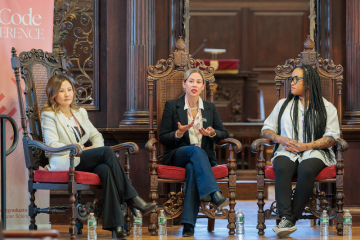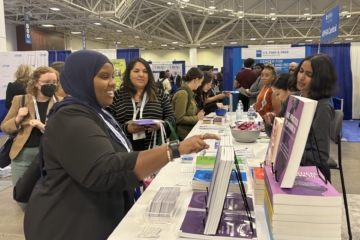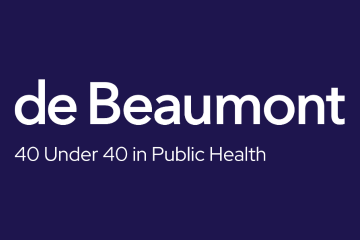See Kaitlyn’s bio. See all 40 Under 40 honorees.
Five Questions for Kaitlyn

Kaitlyn and two of her colleagues conduct a healthy food demonstration for post-disaster conditions in response to Typhoon Soudelor.
1. Who or what inspired you to enter the field of public health?
Realizing that health equity opens the door to equity and well-being in other respects inspired me to enter the field. There are many problems in my community, but one problem I think we can address is using what resources we do have to improve our health. Traditional, whole foods have not been totally forgotten, we have farmers dedicated to improving the food security of the islands, and we have a beautiful environment for physical activity. Improving the health of our community is a key factor to increasing independence and self-sufficiency of the Marianas Islands.
2. What would success in public health look like to you?
I see success in public health when we’ve empowered communities to advocate for their health and realize self-efficacy.
3. What’s a story or experience that keeps you going, even when you’re feeling challenged?
The stories that keep me going are those that I make up in my head about the people my work may affect. It’s difficult to keep going when you don’t make a large, visible impact with an intervention or campaign, or when participation is very low, but remembering that even the smallest of interventions can make one person’s life better or even change the course of it entirely is enough to continue. I often think about the girls and young women whose lives could be improved if they wouldn’t need to care for a parent or grandparent until the family member is much older. It’s not uncommon for parents or grandparents to become ill and disabled from chronic disease in their 50s or even 40s.
4. As a kid, what did you want to be when you grew up?
A zookeeper. I’ve always loved animals.
5. What are the greatest challenges you face in your public health work or area of focus?
The greatest challenges we face are priorities that compete with health, faced by both our government and our community. Prioritizing healthy choices and creating healthy environments is difficult in the face of poverty and limited government resources.

Kaitlyn at a pop-up clinic she helped set up and run after Typhoon Yutu in November 2018. “We’ve had two major typhoons and several smaller ones hit in the last three years, so we’re preparing for natural disasters to be a regular occurrence,” she says.




